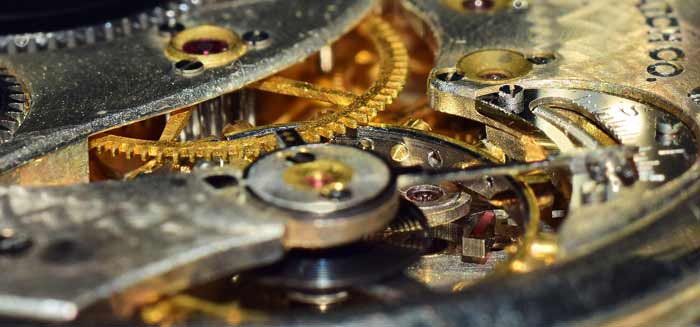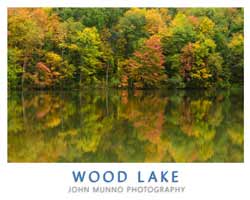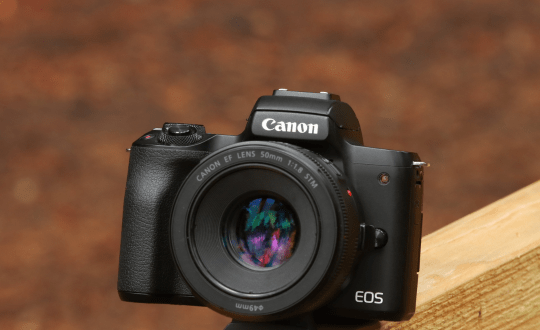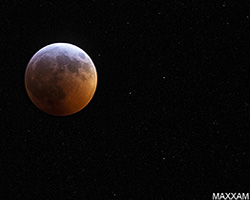Student Success: Student Success: John Russell
Since the age of five, John Russell has been creating various forms of art. An advocate for innovation, Russell discovered his love of photography as a teenager and has subsequently brought his eye for eccentricity to the world of camerawork. A graduate of NYIP, he has since repeatedly been featured in galleries and showcased in fine art exhibitions nationwide. We recently got in touch with John to chat about the apposition of photography and fine art, the impact of NYIP courses and the future of John Russell Photography. Here’s what we learned:

1. How long has art been a part of your life?
At the age of five my hand found a pencil. I began to draw and I was instantly pleasurably addicted to making art, in a very literal sense of the word. I could no more not make art than I could successfully quit eating or breathing.
2. When did you realize that photography was a field you wanted to pursue as well?
In my early teenage years I began to develop a fascination for photography. Cameras in and of themselves fascinated me: I loved the technical and mechanical aspects of them. And the images they enabled someone to produce seemed to be pure magic!
3. We can see in your personal bio that you find it important to create new images as an artist- how does this desire to innovate juxtapose with photography, which instead captures what already exists?
What a great question! While photography does indeed capture what already exists nonetheless if you take 10 different photographers and assign them to shoot the same subject you will have 10 different takes on that subject, so in one sense of the word each photographer’s unique take is a new image. And truly new images can be created by utilizing a variety of techniques, such as kinetic photography (of which I’m particularly fond); layering images; and various other special effects techniques.
4. When did you enroll at NYIP?
I enrolled at NYIP in 2002. I enrolled for 2 reasons: I could not take a decent photograph except by accident and I wanted to take good photos, and I also knew that there was Art inside of the camera if only someone could teach me how to get it out.
5. What was your coursework like?
Challenging but enjoyable. The NYIP lessons opened up a whole new world for me. I would highly recommend NYIP to anyone who wants to become a better photographer.
6. Was your mentor helpful during the process?
Oh my, YES! I was privileged to have Elinor Stecker-Orel as my instructor. She connected with me right away, and she began to translate Photography into Art. She would tell me for example that I see things as an artist, so if I want to make a painting of a landscape I automatically filter out the trash on the ground, the wires overhead, etc., but she helped me to realize that the camera has no such filter and that I had to learn to see as the camera sees. That one bit of advice changed my life artistically. I credit her with making the lessons come to life, and for being able to help me grasp difficult subjects in such a way that I could make sense out of them and apply what I’d learned. And, she helped me to get the Art out of the camera!
7. Has photography impacted your career as an artist?
Very much so: the camera influences me as a painter, and my previous life spent painting and drawing influences me as a photographer. Because of photography I believe I’m also a better painter.
8. Have you turned your photographic ventures into a career or pursued them at all from a business perspective?
Absolutely. I’ve been privileged to sell many photographs now and to have photos in some private collections across the U.S. and even in other countries.

9. What do you always carry with you in your camera bag?
A microfiber cloth. Gunk on the lens is unforgiving.
10. What have you learned in your many years as a creative professional that you wish you could’ve learned at NYIP?
The NYIP course was actually very thorough; the rest just comes from application and experience.
11. Why are creative ventures meaningful to you?
I have an overwhelming desire to communicate, and Art (all of Art, which includes Photography) is, in my mind, the oldest and one of the best forms of communication that there is. I have never gotten over that childlike wonder that makes me want to share with others by saying, “Look!”
12. There are 16 photography exhibitions listed on your website - do you have a personal favorite or one you’re especially proud of?
I do. When we lived in NY we drove to City Island to Focal Point Gallery. I took with me a photograph to be juried into an upcoming show and it was accepted. The owner kept telling me to up my asking price, and I thought I already had an exorbitant price on my photograph. I finally settled with him for a price which he thought was still way too low, and I thought was way too high. I sold that photograph in that show, and the pleasure was immense!
13. If you had to pick one, what was the most memorable photography project you’ve ever completed?
My projects tend to be ongoing, as I’m always growing and learning, but one which stands out in my mind was a series of micro (macro) shots that I made of tiny little weed flowers, some of which were no larger, literally, than the head of a straight pin. To see the tremendous beauty and detail in those tiny flowers was mind blowing.
14. Describe a day in your life as a photographer.
Looking. Looking. Always looking. Trying to see…see a better way to shoot, a different way to shoot, a better way of looking at a familiar subject, a better way to create my abstract photography and trying to come up with new techniques or refinements on old ones. I try to shoot every single day.
15. What’s the most rewarding part of your career?
When someone loves a photograph that I’ve made so much that they purchase it and take it home to live with.
16. If you could give one piece of advice to our current and prospective students, what would it be?
Study, study, study; shoot, shoot, shoot. And don’t be afraid to try new things, new techniques, a different camera or lens. Try to figure things out for yourself, but don’t be afraid to ask for help, guidance, or instruction either. Out there are folks with some great brains to pick, and the best place to start is with your NYIP instructor. Ask, question, probe, learn. And if you want to learn how to take a good, maybe even a great photograph the NYIP course is a fantastic place to start!
Want to learn more? NYIP offers accredited photography classes that can help you improve your hobby or start a new career. Request your free course catalog today!




